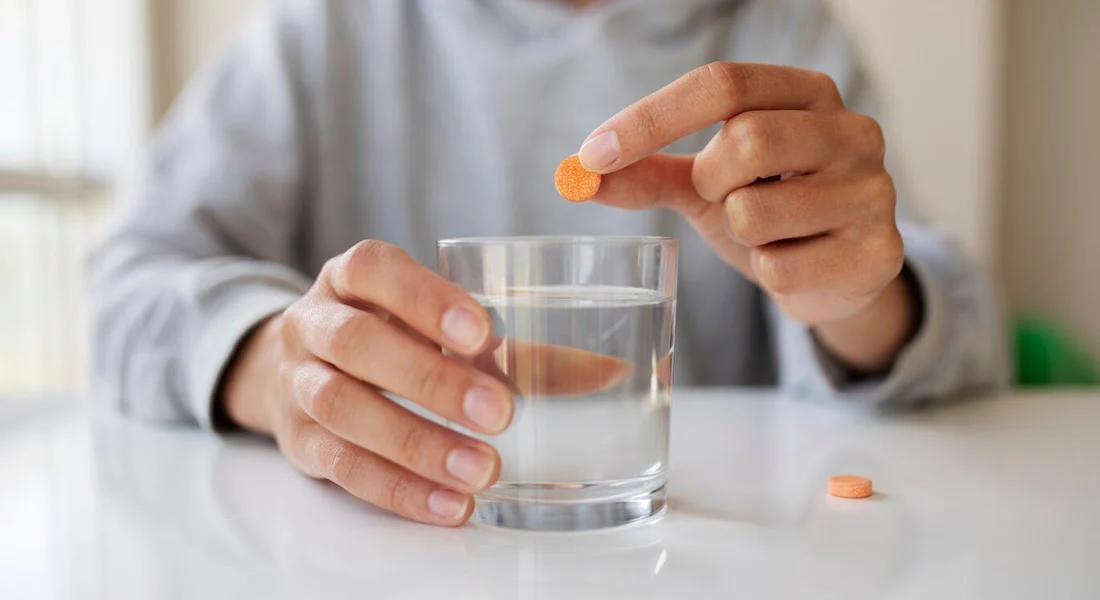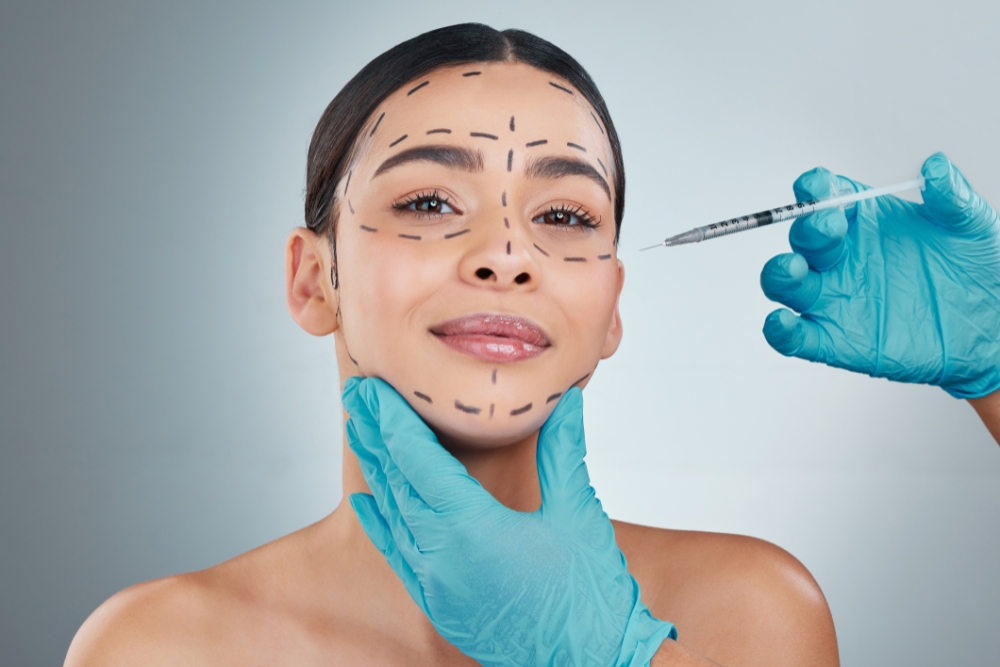Vitamin D plays a huge role in keeping your body strong, energetic, and healthy. Even though it is known as the “sunshine vitamin,” millions of adults in the United States are not getting enough of it. Modern indoor lifestyles, sunscreen use, long winters, and poor diet habits have made vitamin D deficiency extremely common. Sadly, many people do not recognize the early warning signs because they appear slowly and look like normal everyday problems.
In this article, you will learn the early symptoms of vitamin D deficiency in adults, why this deficiency is so common in the US, and what simple steps you can take to improve your levels naturally. The goal is to help you identify these ignored signs early so you can protect your long-term health.
If you want more helpful health and wellness guides like this, feel free to explore our other articles at Health Guiders.
Why Vitamin D Is Important for Adults
Before looking at the signs, it helps to understand why vitamin D matters. Vitamin D supports many essential functions in the body. It helps your bones absorb calcium. It keeps your immune system strong. It supports muscle movement and helps regulate mood. When your body does not get enough vitamin D, these functions weaken, leading to symptoms that affect your daily life.
Most adults need at least 600–800 IU of vitamin D per day, but many Americans get far less than that from sunlight and food. This is why catching early signs is important.
Early Signs of Vitamin D Deficiency in Adults
Vitamin D deficiency does not usually show sudden symptoms. Instead, it develops slowly. Many adults ignore these early warning signs because they seem mild or unrelated. But the sooner you spot them, the faster you can fix the deficiency.
Below are the top early symptoms you should never ignore.
Constant Fatigue and Low Energy
One of the first signs of vitamin D deficiency is feeling tired all the time, even after sleeping well. This happens because vitamin D helps support energy production in the body. Without enough of it, your body struggles to maintain normal energy levels.
Many people blame stress, work, or age for their tiredness. But if you feel drained every day for no clear reason, vitamin D deficiency may be involved.
Weak Immune System and Frequent Illness
Vitamin D plays a key role in strengthening your immune system. Adults with low vitamin D levels often notice that they get sick more often. You may experience more colds, flu, sinus infections, or slow recovery from common illnesses.
This happens because vitamin D helps your immune cells fight off germs. Without enough of it, your immune defenses weaken. If you find yourself falling sick repeatedly throughout the year, it may be time to check your vitamin D levels.
Muscle Pain and Body Aches
Many adults notice unexplained muscle discomfort when their vitamin D level drops. Muscle pain, cramps, and overall body stiffness are common signs. Vitamin D helps your muscles work smoothly, and low levels can cause inflammation and discomfort.
Some people wake up with a sore back or aching legs without doing any heavy activity. Because these pains happen slowly over time, people often ignore them. But they can be a warning sign that your body needs more vitamin D.
Mood Changes and Feeling Down
Vitamin D helps the brain produce chemicals linked to mood and emotional balance. When your body lacks vitamin D, you may notice mood swings, sadness, or mild depression. Some adults feel more emotional, irritated, or unmotivated without understanding why.
Seasonal Affective Disorder (SAD), which affects many people in the US during winter, is also linked to low vitamin D from reduced sunlight. If you feel unusually low during darker months, this deficiency might be playing a part.
Hair Thinning and Slow Hair Growth
Hair loss or thinning can be another early sign. Vitamin D supports the hair growth cycle, and low levels may cause hair to fall out faster or regrow more slowly. While hair loss can have many causes, vitamin D deficiency is often overlooked.
If your hair looks thinner or weaker than before, checking your vitamin D levels may help you understand the cause.
Bone Pain and Weakness
Vitamin D is essential for keeping your bones strong because it helps your body absorb calcium. Without enough vitamin D, your bones may feel weak or painful. Some adults feel dull aches in their lower back, hips, or legs, especially when walking or standing for long periods.
While this can happen at any age, it is more common in adults who spend most of their day indoors or rarely get sunlight.
Slow Wound Healing
If your cuts and wounds take longer to heal than usual, vitamin D deficiency may be one reason. Vitamin D helps reduce inflammation and supports skin repair. Low levels make it harder for your body to restore damaged tissues.
People often notice slow healing after small cuts, scrapes, or surgery. This sign is easy to miss but important to pay attention to.
Poor Sleep Quality
Some adults experience trouble sleeping when their vitamin D levels are low. You may have difficulty falling asleep, staying asleep, or waking up feeling unrested. Vitamin D interacts with the part of the brain that regulates sleep. When levels drop, your sleep cycle may get affected.
Why Vitamin D Deficiency Is Common in the US
Many adults in the US struggle with vitamin D deficiency because of modern lifestyle habits. Most people spend long hours indoors at work or home. Sunscreen limits vitamin D–producing UV rays. Winter months in northern states reduce sunlight. Diets that lack vitamin D-rich foods also contribute to the problem.
People with darker skin tones may need more sunlight exposure to produce vitamin D naturally. Adults who are overweight or over 50 also have a higher risk of deficiency.
Understanding the causes can help you take better steps toward improving your health.
How to Improve Vitamin D Levels Naturally
If you think you may have low vitamin D, there are simple ways to increase your levels.
One of the best sources is sunlight. Spending 10–20 minutes in the sun a few times a week can help, depending on your skin type and location. Eating foods like fatty fish, fortified milk, eggs, mushrooms, and orange juice can also boost your vitamin D.
Some adults may need supplements if sunlight and diet are not enough. Always talk to a healthcare professional before starting supplements to know the right dose.
When to See a Doctor
If you have several symptoms listed above or if you suspect vitamin D deficiency, a simple blood test can confirm your levels. Getting checked early helps prevent long-term issues like bone loss, weak immunity, or chronic fatigue.
Doctors can guide you on the correct supplement dose or lifestyle changes based on your needs.
Final Thoughts
Vitamin D deficiency is more common than many people realize, especially in the United States. The early signs are often ignored because they appear slowly and look like everyday problems. But paying attention to symptoms like fatigue, muscle pain, mood changes, and weak immunity can help you catch the deficiency early.
Your body needs enough vitamin D to stay strong, energetic, and healthy. If you want more simple and useful health guides like this, you can explore our helpful articles on Health Guiders for better wellness tips and daily health support.
Frequently Asked Questions
What are the first warning signs of vitamin D deficiency?
Early signs include tiredness, weak immunity, mood changes, muscle pain, and slow healing. Many adults mistake these symptoms for stress or aging.
Can vitamin D deficiency cause anxiety or depression?
Yes. Low vitamin D levels are linked to mood imbalance, sadness, and anxiety because vitamin D affects brain chemicals.
Is sunlight enough to fix low vitamin D?
Sunlight helps, but it may not be enough for everyone, especially in winter or indoor lifestyles. A mix of sunlight, diet, and supplements works best.
How long does it take to raise vitamin D levels?
For most adults, levels improve within a few weeks to a few months depending on diet, sun exposure, and supplements.
Should I take supplements for vitamin D?
Some adults need supplements, but it is always best to speak with a healthcare provider to choose the right dose.




